Description
ABSTRACT
Udeogu v FRN: The Need to Revisit the Provisions of Section 396(7) of ACJA 2015
Simeon Oyakhilome Okoduwa* and Theophilus Ochonogor**
The decision of the Supreme Court of Nigeria (“SCN”) regarding the constitutionality of section 396(7) of the Administration of Criminal Justice Act, 2015 (“ACJA”) in Udeogu v FRN & Ors. was received with mixed reactions by stakeholders, especially as it had the effect of nullifying several judicial interventions, which were designed to facilitate speedier access to justice. Thus, while it is arguable that the decision of the SCN on the subject is consistent with the Constitution of the Federal Republic of Nigeria,1999, there is a strong case to be made for retaining the provisions of section 396(7) of ACJA in the opinion of the writers, if the imperatives of deepening access to justice and unburdening the pressure of the business of our courts in Nigeria are to be attained. This article attempts to make that case in the expectation that concerted efforts could commence in earnest towards effecting necessary constitutional changes.
Keywords: Criminal Justice, Constitution, Supreme Court, ACJA,
INTRODUCTION
Honourable Justice Phillip Nnaemeka-Agu was a Judge of the High Court of Anambra State of Nigeria. Sometime in 1977, he had just concluded the trial of Obi Akudo & ors v Obianwuna Ogbuniya & Ors.,1 assigned to him at the Onitsha Judicial Division. By Government Notice No.1258, the then Supreme Military Council elevated him to the Federal Court of Appeal with effect from 15th June, 1977. On 17th June, 1977, before he took his oath of office as a Justice of the Federal Court of Appeal, his Lordship delivered judgment in the said Suit No. O/71/58 in favour of the Defendants. The Plaintiffs, being dissatisfied, appealed to the Court of Appeal, Enugu, where they contended, unsuccessfully, that the judgment of the court below was null and void, having been delivered by a judge who had ceased to be a judge of the High Court of Anambra State and who therefore, had no jurisdiction to do so. On appeal to the Supreme Court of Nigeria, Idigbe, JSC (as he then was) delivered the leading judgment as follows:
From the foregoing observations, we are satisfied that (1) it was the intention of the Supreme Military Council – as expressed in exhibit SC(1) – that (1) the appointment of Nnaemeka – Agu J. as a judge of the Federal Court of Appeal should, and did take effect from the 15th June, 1977, and (2) on that date (15th June, 1977) he ceased to be a Judge of the High Court of Anambra State, and (3) when, therefore, on the 17th June, 1977, he gave the judgment now on appeal he did so without jurisdiction…2
* Former Partner at Alliance Law Firm.
** Partner at Alliance Law Firm.
- Suit No O/71/58 (unreported).
- Ogbunyiya & ors v Okudo & ors [1979] LPELR – 2295 (SC) 24 – 25[D]–[A]. [1989] 2 NWLR (pt 105) 499.

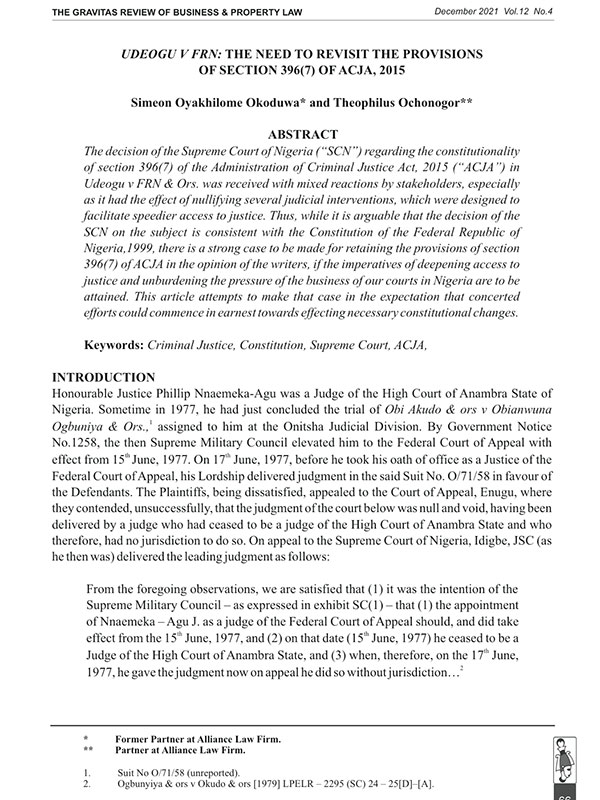
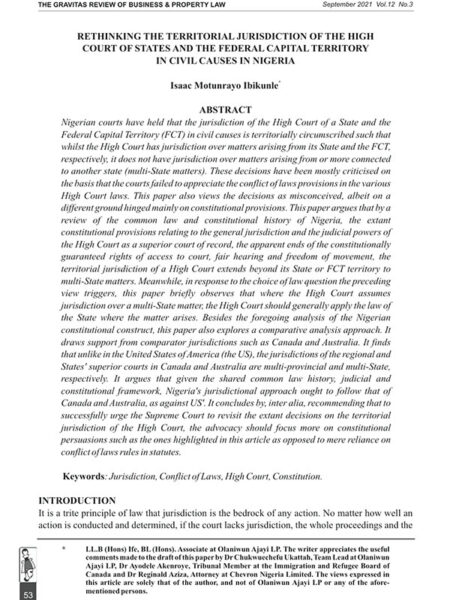
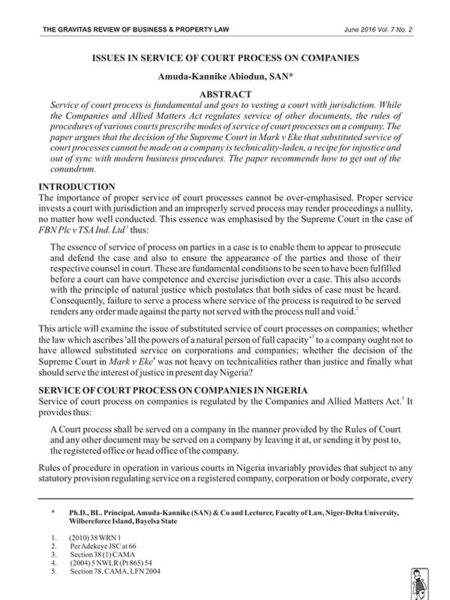
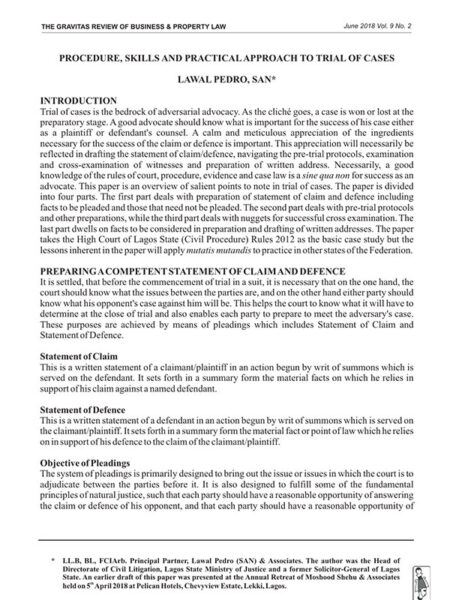
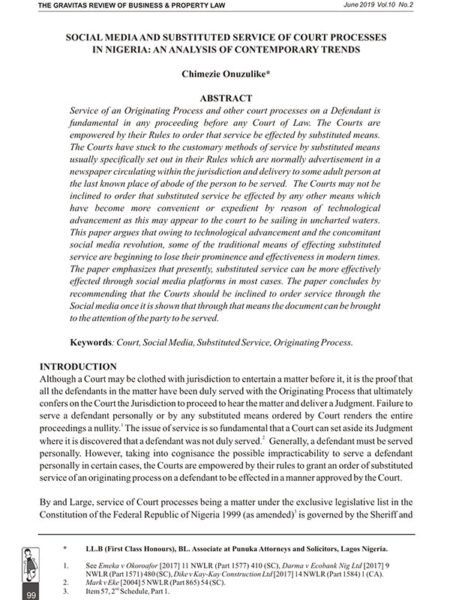


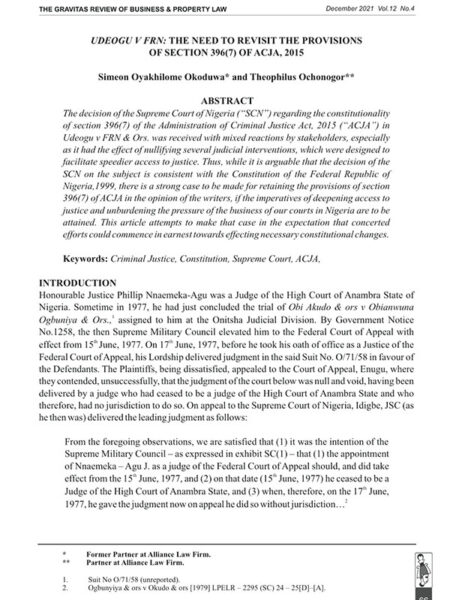
Reviews
There are no reviews yet.